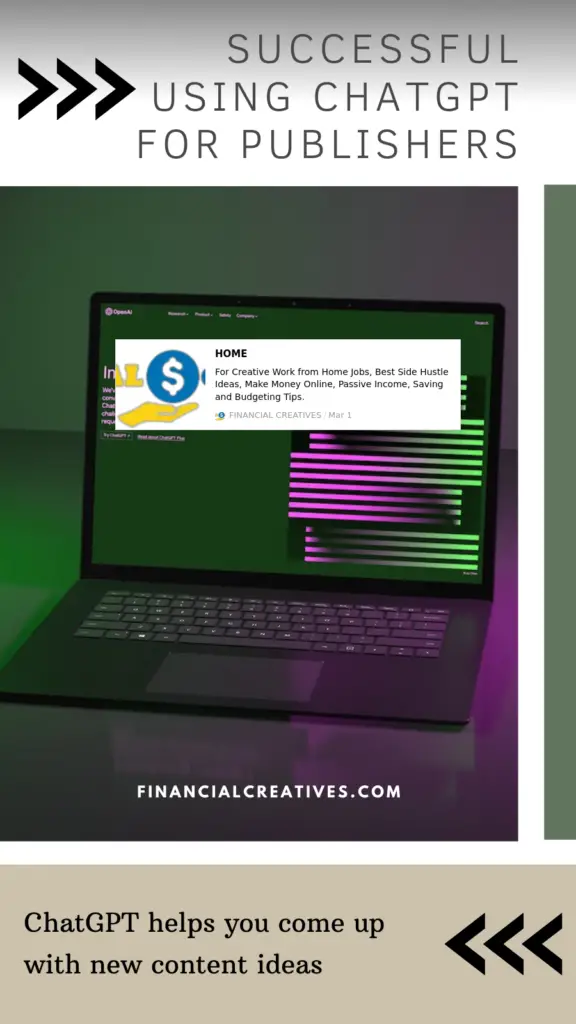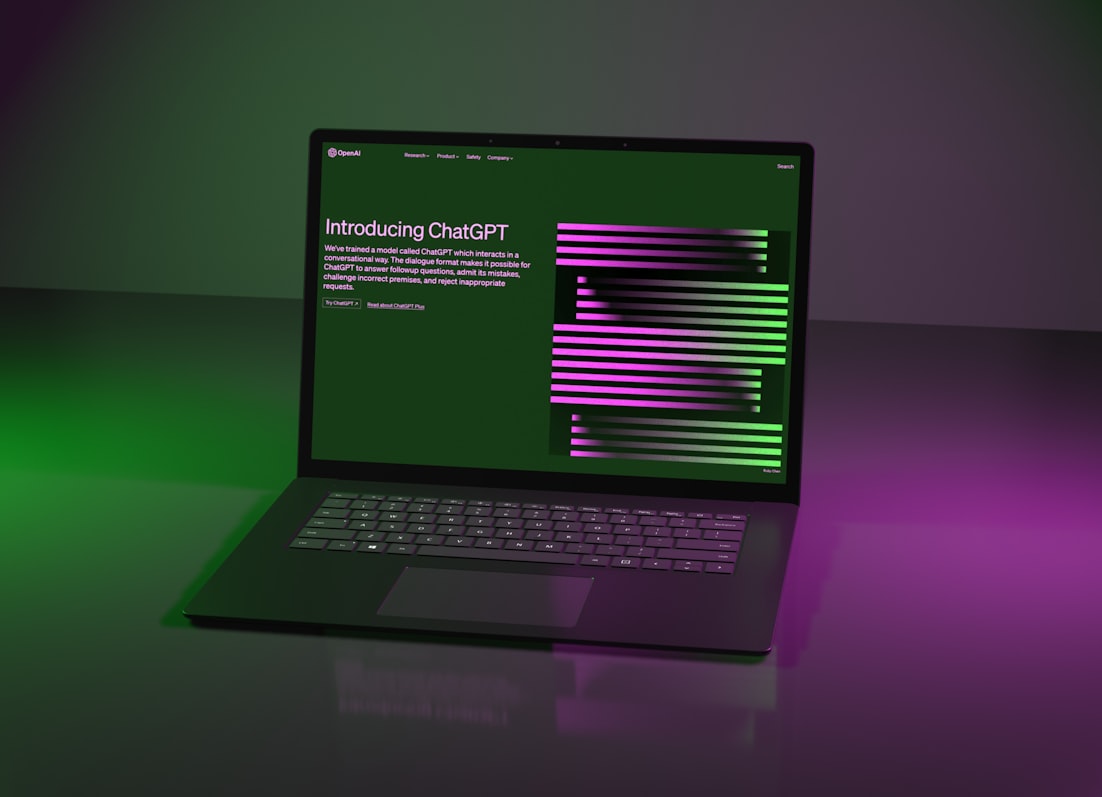Every publisher is always looking for ways to improve their content and be interesting to readers. And such a solution appeared! One of the latest technologies that can help you with this is the use of ChatGPT for publishers, a large language model developed by OpenAI. ChatGPT is an advanced AI tool that can generate human text, answer questions, and even carry on a conversation. However, like any other technology, ChatGPT has its advantages and disadvantages. In the following, we’ll look at ways to put ChatGPT to work, its advantages and disadvantages, and help you make an informed decision about whether this innovative method is right for you.
Ways to use ChatGPT for publishers
Here are some ways to use ChatGPT for publishers:
Idea Generation
One of the biggest challenges for publishers is coming up with new ideas for content. ChatGPT can help you with this by providing you with a wealth of topic ideas to choose from. Simply input a few keywords related to your niche or industry, and ChatGPT will generate a list of potential topics for you to explore. You can use these ideas as inspiration for your next blog post, article, or video.
Content Creation
ChatGPT can also be used to create high-quality content. Simply input a brief description of what you want to write about, and ChatGPT will generate a full article for you. This can save you time and effort in writing your content while ensuring that your articles are well-written and engaging.
Content Optimization
ChatGPT can also be used to optimize your existing content. By inputting a piece of content you’ve already written, ChatGPT can provide suggestions on how to improve it. This can include suggestions on how to make the content more engaging, how to improve the flow and structure of the content, and even suggestions for additional topics to cover.
Translation
If you’re looking to expand your reach beyond your local audience, ChatGPT can also be used for translation. ChatGPT can translate your existing content into multiple languages, allowing you to reach a wider audience. This can be especially useful if you’re looking to target specific markets or demographics.
Chatbot Integration
ChatGPT can be integrated into your website as a chatbot. This allows you to engage with your audience in a more interactive way, while also providing them with valuable content. ChatGPT can be programmed to answer common questions related to your niche or industry, provide recommendations on relevant content, and even engage in conversation with your audience.
Advantages of using ChatGPT for publishers
1. Save time
One of the biggest benefits of using ChatGPT is the time savings. As a publisher, you will be able to study, write and edit personal content for several hours. With ChatGPT, you can significantly reduce the time it takes to write a new post and generate unique content quickly. ChatGPT can produce high-quality content in a matter of time, which gives you more time to focus on other aspects of your blog such as marketing and promotion.
2. Economic benefit
In addition to saving time, the implementation of ChatGPT still has the potential to be profitable. Hiring a writer to write content for your blog can be a costly process, especially if you regularly release multiple posts a week. With ChatGPT, you only have to pay for the idea, not for the individual creator. This can save you an important required amount of funds in the long run.
3. Consistency
Another benefit of using ChatGPT is the consistency it guarantees in your content. ChatGPT is programmed to maintain a single tone and style on your blog, making it easy for readers to follow. This consistency still can help determine the recognizability and originality of your content.
4. High-quality content
ChatGPT can generate quality content without spelling or grammar mistakes. This can increase the credibility of your blog and make you an authority in your niche. Apart from that, ChatGPT can access a large amount of information, ensuring that your content is accurate and up to date.
5. Customizable
Another advantage of using ChatGPT is the possibility of an output option. You can give the AI tool specific main texts or topics to focus on, ensuring that the actual content you develop is engaging for your readers. This can help improve interaction and increase the chances that readers will share your content.
Disadvantages of using ChatGPT for publishers
1. Lack of creativity
While ChatGPT can generate quality content, it lacks the creativity and original perspective that only human writers can provide. AI-designed content can be mechanized and formulaic, resulting in a lack of engagement and attention from readers. Ultimately, this can damage your blog’s reputation and lead to a decrease in popularity.
2. Limited customization
Although ChatGPT is relatively highly customizable, it is still limited in terms of its ability to create specialized content. This can be a disadvantage if you want to create content that fits your niche or audience.
3. Ethical difficulties
The introduction of AI-made content has the potential to raise ethical concerns on the pretext of transparency and authenticity. Readers have every chance of not believing content developed by a non-human writer, which leads to a decrease in engagement and readership. Apart from this, some readers have every chance to feel misled or deceived if they do not understand that the content is generated with the support of an AI tool.
4. Limited ability to perceive the context
Although ChatGPT can generate genuine and important content, it can be difficult for it to get the gist of specific topics. This can lead to inaccuracies and misunderstandings in the generated content, potentially harming your blog’s reputation and credibility.
5. Limited flexibility
Implementing ChatGPT can limit your flexibility in the type of content you can make. While ChatGPT can make written content, it may not be suitable for other types of content such as videos or podcasts. This can limit your ability to reach your audience in different ways and can lead to a repetitive content strategy.
Weigh all the pros and cons!
Using ChatGPT for publishers has both advantages and disadvantages. There are many progressive methods to implement this technology for your website. This can save time and money and provide high-quality, consistent content, but it may lack the creativity and authenticity that readers expect from human authors. In addition, there may be ethical concerns and limitations in customization and flexibility.
Ultimately, the decision to use ChatGPT will depend on your individual needs and goals as a publisher. If you want to save time and resources and create consistently high-quality content, ChatGPT can be a useful tool. However, if you value creativity and authenticity in your content and want to tailor your content strategy to your specific audience, human writers may still be a better choice. As with any technology, it’s important to weigh the pros and cons and make an informed decision that aligns with your values and goals.

While ChatGPT publishing can generate high-quality content, it is not a replacement for human writers. Instead, this technology should be used in conjunction with human editing and oversight to ensure that the content is accurate and engaging.


